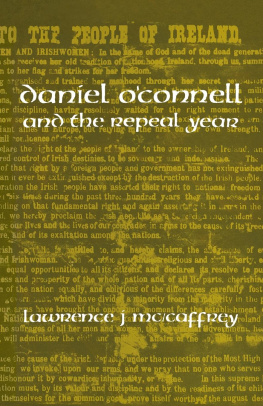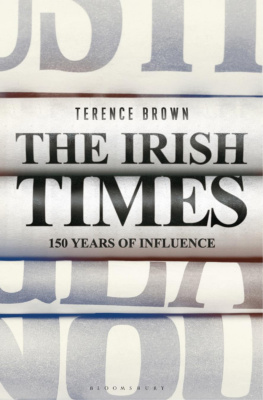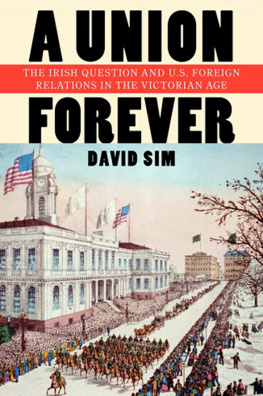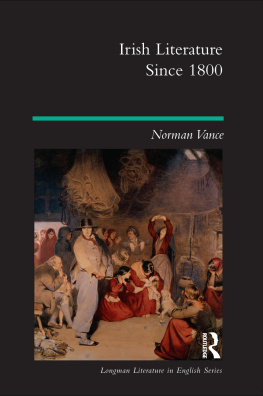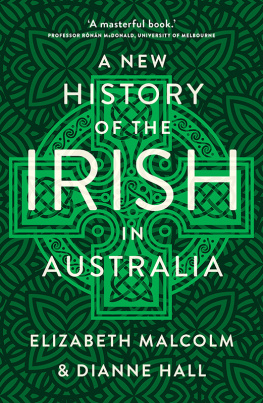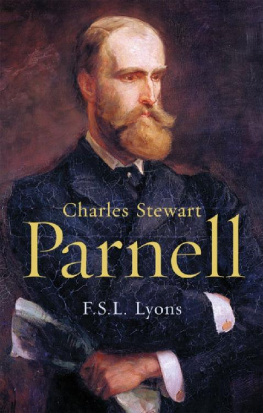Lawrence J. McCaffrey - The Irish Question: Two Centuries of Conflict
Here you can read online Lawrence J. McCaffrey - The Irish Question: Two Centuries of Conflict full text of the book (entire story) in english for free. Download pdf and epub, get meaning, cover and reviews about this ebook. City: Lexington, year: 2021, publisher: University Press of Kentucky, genre: History. Description of the work, (preface) as well as reviews are available. Best literature library LitArk.com created for fans of good reading and offers a wide selection of genres:
Romance novel
Science fiction
Adventure
Detective
Science
History
Home and family
Prose
Art
Politics
Computer
Non-fiction
Religion
Business
Children
Humor
Choose a favorite category and find really read worthwhile books. Enjoy immersion in the world of imagination, feel the emotions of the characters or learn something new for yourself, make an fascinating discovery.

- Book:The Irish Question: Two Centuries of Conflict
- Author:
- Publisher:University Press of Kentucky
- Genre:
- Year:2021
- City:Lexington
- Rating:4 / 5
- Favourites:Add to favourites
- Your mark:
The Irish Question: Two Centuries of Conflict: summary, description and annotation
We offer to read an annotation, description, summary or preface (depends on what the author of the book "The Irish Question: Two Centuries of Conflict" wrote himself). If you haven't found the necessary information about the book — write in the comments, we will try to find it.
The many dimensions of the Irish Question, 18001922, constituted the most emotion-laden problem in British politics, often to the detriment of other imperial interestsa Gordian knot only severed by the establishment of the Irish Free State in 1922. In this volume Lawrence J. McCaffrey presents a coherent view of the evolution of Irish nationalism since 1800 and the impact of the Irish Question on British culture, politics, and institutions.
The emotional nexus of the Irish Question was the religious issue, but McCaffrey believes that nationalism emerged from the attempt of the Irish Protestant minority, supported by Britain, to maintain religious, political, economic, and social ascendancy over a deprived and resentful majority. Although British concessions to Irish agitation removed many grievancesgranting to Ireland virtual religious equality, along with substantial social, economic, and political reformsnationalism, often frustrated in its attempts to secure reform and freedom, assumed an increasingly rigid position. Nationalists were not willing to settle for less than self-government, and as constitutional methods failed to achieve this goal, violence seemed the only other alternative.
The bitter dissensions created by the Irish Question left permanent marks upon British politics and institutions. The efforts of two Prime Ministers, Peel and Gladstone, to resolve the conflict split their parties, thus contributing to political confusion and instability. But the Irish nationalistBritish Liberal alliance achieved improvement in the condition of Ireland and speeded advancement of democracy in Britain. And the attempt of British politicians to deal with the economic and social aspects of the Irish Question undermined laissez faire and encouraged the progress of the welfare state in both islands. On the other hand, the challenge of Irish nationalism sustained and stimulated the no-Popery roots of British nativism, making it an influential factor in politics until early in the twentieth century.
The Irish Question, McCaffrey believes, has particular relevance in our contemporary world of emerging nations, wars of liberation, and tensions between majorities and minorities. Ireland offers an early example of the dreams of cultural nationalists becoming realities and of the sobering fact that ideological revolutionaries often make poor practical politicians.
Lawrence J. McCaffrey: author's other books
Who wrote The Irish Question: Two Centuries of Conflict? Find out the surname, the name of the author of the book and a list of all author's works by series.

